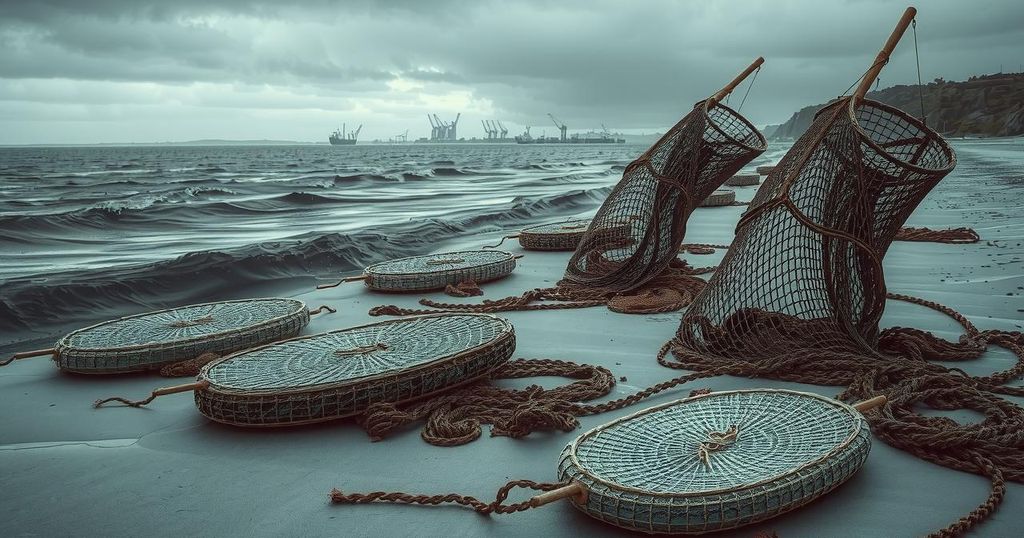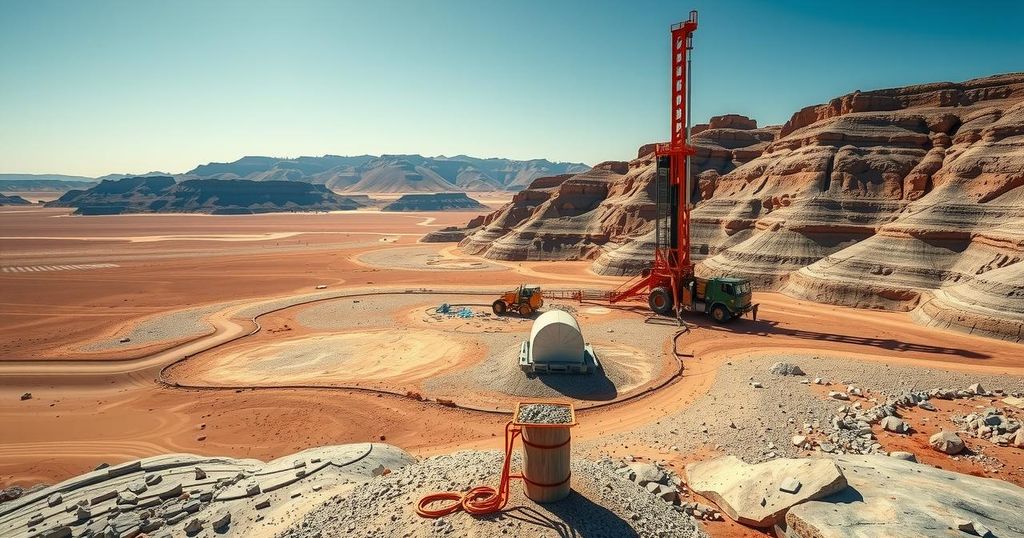Peruvian Fishers Seek Justice Following Oil Spill at New Talara Refinery
In December 2024, a pipeline leak at the New Talara Refinery in Peru caused an oil spill impacting 10 kilometers of coastline. The Peruvian environment ministry declared a 90-day emergency that halted fishing activities for over 4,000 artisanal fishers. Though the fishermen have resumed work, they demand additional compensation from Petroperú, which they deem insufficient. The episode raises concerns about the long-term impact of oil spills on local communities and ecosystems.
On December 22, 2024, a pipeline leak at the New Talara Refinery in northern Peru resulted in significant oil pollution, affecting 10 kilometers (6 miles) of the Pacific coastline. Following this incident, the Peruvian environment ministry declared a 90-day environmental emergency, devastating local tourism and disrupting the livelihoods of over 4,000 artisanal fishers. Now, months later, these fishers are demanding additional compensation from the state-owned oil company, Petroperú, claiming the initial amount offered was inadequate.
The disaster unfolded early on December 22, when local fishers discovered their fishing gear contaminated with oil instead of the usual catch. Petroperú reported a leak of 0.9 barrels (140 liters) from its pipeline shortly after the spill occurred. Following this, the environment ministry’s declaration of emergency halted all fishing activities in the impacted areas, severely affecting the livelihoods of local fishers.
Since returning to work, many fishers are expressing dissatisfaction with the compensation they received. Tulio Chapilliquen, a fisherman from Lobitos, recalled witnessing oil spills in his childhood, noting that “the recent spill was ‘just like the one I saw [as a child],” illustrating a persistent environmental issue affecting the region. The official report indicated even greater spill volumes than initially stated by Petroperú, raising concerns about cleanup efforts.
Petroperú initiated cleanup operations, with oversight provided by environmental authorities, but challenges persisted due to violent oceanic conditions that further disrupted fishing activities. The rough seas damaged many boats and local infrastructure, compounding the fishermen’s losses during a crucial holiday season. Despite the visible cleanup, marine biologist Héctor Aponte warned that oil remnants remained toxic, requiring careful monitoring.
As the crisis unfolded, local support networks emerged. The Talara Fishermen’s Guild organized communal meals for families left without income, as state and company responses proved insufficient. César Iván Álvarez, a fisheries worker, voiced the struggle for financial stability amid ongoing pollution, stating, “where am I going to get money to give my children an education with a situation like this?” Calls for compensation included demands for 100 soles ($27) per day to cover losses from the emergency.
However, the responses offered by Petroperú did not meet fishermen’s expectations, further escalating tensions. The company offered meager financial assistance, while the fishers collectively sought legal recourse to obtain fair compensation for their losses. The disparity between compensation and losses reflected a growing frustration among the affected communities and highlighted systemic issues in how environmental disasters are managed.
The oil spill incident underscores the ongoing challenges faced by local fishers in Peru, where financial obligations related to environmental damage remain largely unmet. Despite fines levied against Petroperú, the troubled company continues to project a commitment to providing “fair and clean energy for all Peruvians.”
In conclusion, the December 2024 oil spill from the New Talara Refinery has significant repercussions for the local artisanal fishing community in northern Peru, as they face environmental, economic, and social challenges. The inadequate compensation offered by Petroperú has prompted ongoing legal action from fishermen seeking justice for their losses. The situation highlights the need for better protection and remediation practices in response to industrial environmental disasters, ensuring the sustainability of both the ecosystem and the livelihoods of affected communities.
Original Source: news.mongabay.com




Post Comment